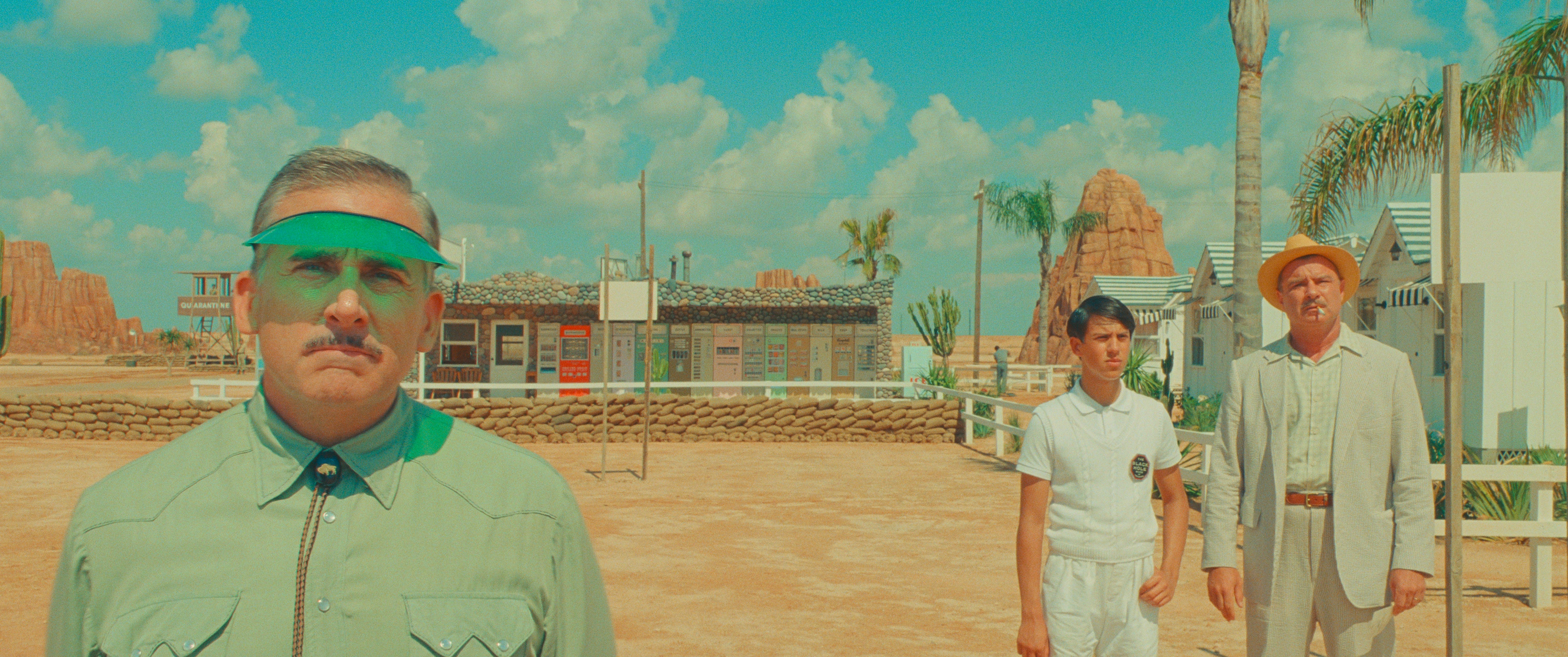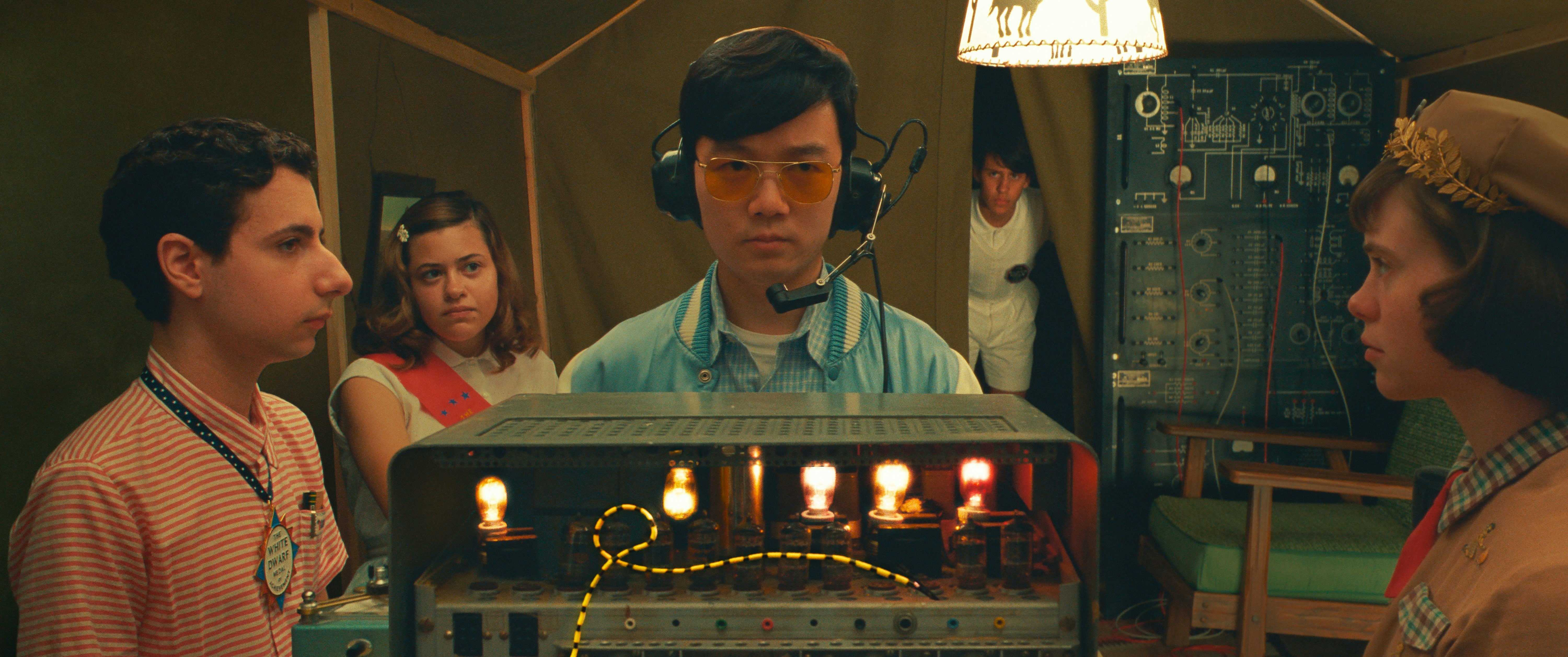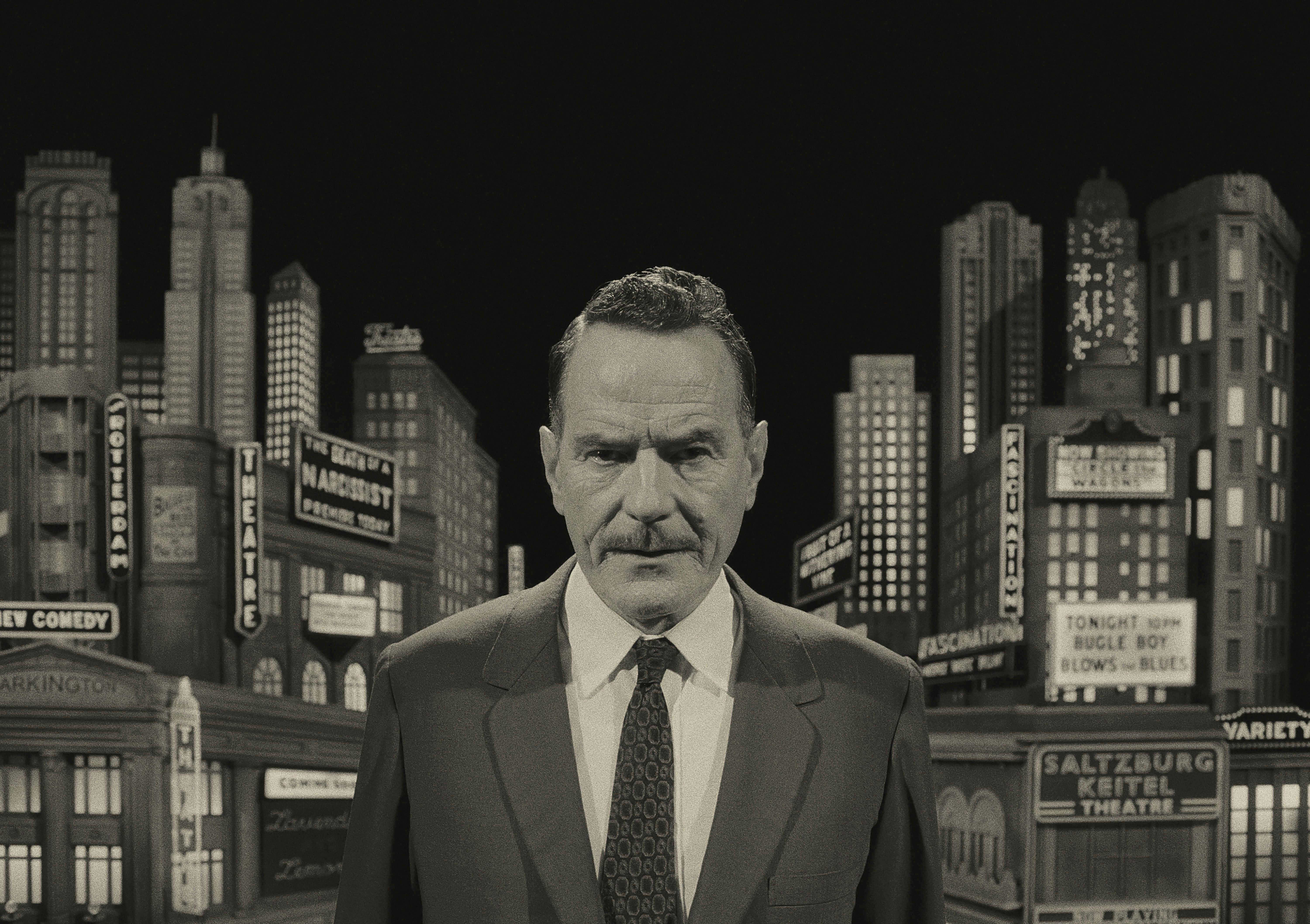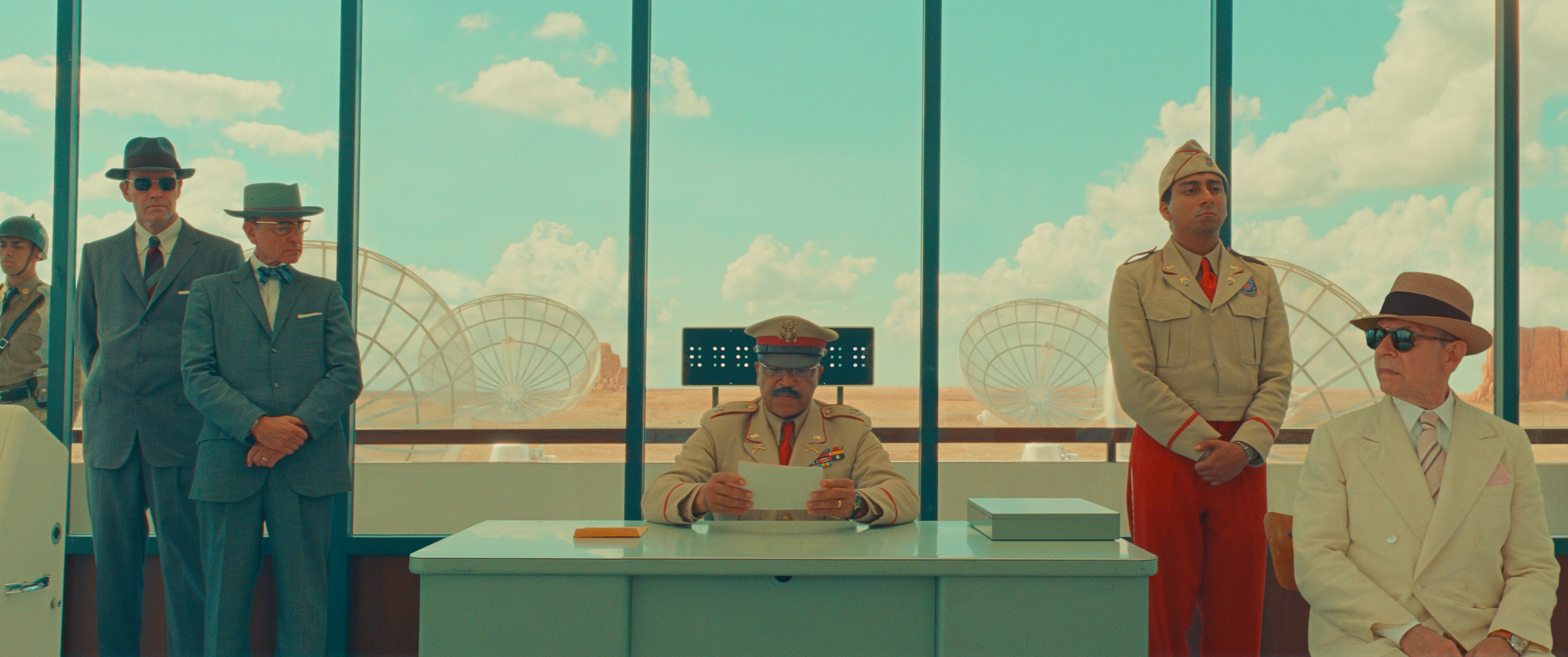
The flourishes you’d expect from a Wes Anderson film are all visible in Asteroid City. However, they arrive with a renewed sense of thematic precision born from carefully-controlled imprecision, as if Anderson were searching for existential answers through his oft-parodied style. It’s one of the best films in Anderson’s recent oeuvre, but its success lies in its ability to create meaning not just on the surface, but far beneath it, in a place the camera seldom goes.
It's likely to come off as thematically opaque to some viewers, if not outright inaccessible. However, it’s also Anderson’s most disarmingly spiritual film in some time, born from an absurdist approach to grief, wrapped in layers of fiction-within-fiction to soften the blow.

The film opens with an introduction by a distinctly Rod Sterling-esque host (Bryan Cranston). The events of the film are immediately revealed to be a cinematic interpretation of an ongoing play about its own creation, framed by the struggles of playwright Conrad Earp (Edward Norton), stage director Schubert Green (Adrien Brody), and a cavalcade of theatrical talent attempting to bring a sci-fi saga to the stage… a story that is itself being broadcast as a televised play — a sort of meta Twilight Zone.
Essentially, the events of the film exist within a play, within a teleplay, within a Wes Anderson movie.
The televised play follows junior stargazers and their parents gathering for a science convention in the New Mexico desert in 1955, alongside a young teacher (Maya Hawke) and her students from a Sunday school. Eventually, they all end up having a delightful alien encounter. But this time around, Anderson’s pastels are faded, and each time his eager camera whip-pans on its axis, it feels less like it’s en route to landing on a specific subject and more like it’s searching for something in the ether. Perhaps some way to explain the universe to a child (or to anyone, in a way that makes sense).
Jason Schwartzman, who began his partnership with Anderson playing a teenager in Rushmore, graduates to the role of an Andersonian distant father, the kind previously played by Gene Hackman and Bill Murray. The aloofness of his dialogue (another Anderson signature) is complemented by the vast emptiness around the characters, with an infinite desert expanding in all directions, as Schwartzman’s middle-aged photographer August “Augie” Steenbeck tries to find the best way to break devastating family news to his kids: a teenage inventor son, Woodrow (Jake Ryan) and his adorable, energetic triplet daughters (played by real triplets Ella, Gracie and Willan Farris), whose playful zest for life is matched only by their curiosity about death. Tom Hanks plays Steenbeck’s scowling, disapproving father-in-law, while a litany of old and new Anderson regulars (from Tilda Swinton and Bob Balaban, to Tony Revolori and Stephen Park) turn minor government and scientist roles into eccentric cameos.

Much like in Anderson’s The Grand Budapest Hotel, which told a Holocaust story through several layers of stories and memories, Asteroid City is a saga of existential anxieties filtered through enamoring vistas that feel composed of miniatures and painted flats. The film’s numerous parental characters struggle to explain (to their children) and grapple (themselves) with the finite nature of life, which seems all the more minuscule when contrasted with the increasingly infinite nature of the universe. In effect, the movie’s numerous layers involve not just the desperate search for answers through science and religion, but the search for the search itself — the struggles to even put into words, or dramatic scenarios, the full weight of what’s being asked when a child wonders what happens when we die. It’s a question that feels all the more pressing as nuclear tests unfold in the background, and the specter of “the bomb” approaches.
And yet, Asteroid City is also just as raucously fun as Grand Budapest. It takes its subject matter seriously, while allowing its droll, determined characters (who exist on a broad spectrum between withheld and hyper-active) to interact mischievously with the frame. The film has far fewer carefully-composed panoramas than Anderson’s recent works — his living pop-up book approach in The French Dispatch is entirely absent here, while his typical lateral pans don’t open up and explore space as much as they simply shift between narrow windows into the characters’ lives — and so his stage-performer characters become active participants in the blocking, ensuring that despite its relative stillness, the frame always has something to say.

It's Anderson’s most stylistically restrained film in years, but by pulling back on his flashy hallmarks, he also pulls back the curtain of the themes that make him tick. It’s as if he foresaw the spring of 2023 (with its Wes Anderson Tik Tok trends and A.I. generated trailers) and presaged the need to emphasize that his recognizable aesthetic only works because of what it tries to hide, rather than what it emphasizes. It’s a style often meant to soften the blow of unspoken melancholy, of broken families, and of human atrocities, ideas that come rushing to the fore in Asteroid City, but remain fittingly concealed beneath a tale of mothers, fathers, and teenagers trying to exert control on a chaotic universe (Liev Schreiber is particularly hilarious in this vein, but the less revealed in advance about his character, the better).
Composer Alexandre Desplat provides a wondrous, twinkling score as the characters gaze up at the stars, and the stars gaze back at them — but between those stars lives an infinite void that gazes back as well. Asteroid City, like much of Anderson’s recent work, is about finding the right balance between the dark and the luminous, which always exist hand in hand, in his imaginative conception of the world.
Here, that conception is set during a period where imagination itself existed in the narrow space between light and dark — where televised science fiction sprung equally from the utopian and the apocalyptic, owing to a space race that aimed to take us to the stars, and an arms race that threatened to reduce us to dust. It’s a film that wrestles with the impulses of nihilism and hope, resulting in a work that — like the movie’s stop-motion alien visitor — seems initially hostile, but is ultimately generous. Whether or not it’s Anderson’s best film to date is yet to be determined. But it’s certainly one of his most vulnerable.







